21 Important Questions to Ask When Leasing a Car
June 8, 2021
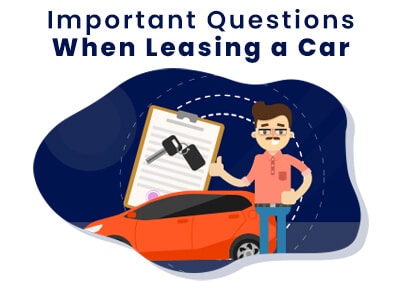

I am a serial entrepreneur and a consumer advocate. When I’m not helping car buyers, I love working on ventures that have a positive impact.
I run a cause marketing agency and serve on the board of Vayu Global Health where we are disrupting the medical industry and preventing the needless deaths of mothers and babies during childbirth.
Leasing a vehicle can be a great option for those looking for an affordable way to drive newer cars.
However, to ensure you get the best lease deal without any unwanted surprises, you must ask the right questions before signing a lease.
Here are some of the most important questions to ask when leasing a car.
Table of Contents
- 1 - How Often Do I Want a New Car?
- 2 - Is Leasing a Good Option?
- 3 - What Credit Score Do I Need to Lease a Car?
- 4 - Can I Lease a Used Car?
- 5 - What Is the Vehicle’s Residual Value?
- 6 - How Long Is the Lease?
- 7 - What Is Due Upfront?
- 8 - Can I Get My Deposit Back?
- 9 - What Is the Mileage Limit on the Lease?
- 10 - What Are the Excess Mileage Charges?
- 11- What Is the Money Factor?
- 12 - What Are the Lease Fees?
- 13 - What Are Your Lease Specials?
- 14 - Can I Get a Zero Down Lease?
- 15 - What Are My Maintenance Responsibilities?
- 16 - What Are the Warranty Terms?
- 17 - What Are the Wear and Tear Charges?
- 18 - How Can I Buy a Leased Car at the End of the Lease?
- 19 - What Happens When My Lease Ends?
- 20 - Do I Need GAP (Guaranteed Asset Protection) Insurance?
- 21 - Can I Return My Leased Vehicle to a Different Dealership?
- Best Car Deals by Category
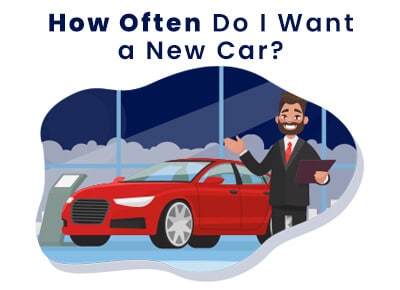 1 - How Often Do I Want a New Car?
1 - How Often Do I Want a New Car?
Ask yourself how long you want to drive the same car. If you plan to change your driving habits in a few years or like having the newest technology, leasing is a good option. Also, make sure your lease term length fits your new car preferences.
2 - Is Leasing a Good Option?
Leasing a car comes with many benefits, including:
- Maintenance provisions
- Lower payments than a loan
- Ability to change vehicles without trade-in or selling
Ask yourself if leasing a car is a good idea based on the pros and cons it offers and your unique needs. Those who like to get new vehicles every couple of years may benefit from leasing a car. However, leases have mileage caps and can be pricier than buying a car you will keep for many years.
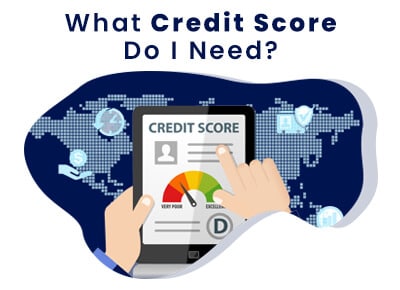 3 - What Credit Score Do I Need to Lease a Car?
3 - What Credit Score Do I Need to Lease a Car?
While you may not be immediately declined for a lease with a credit score under 619, there’s a good chance you’ll have to pay more interest or put down a larger down payment. Oftentimes, zero-down leases do require a good credit score. Learn more about what it means to be a well-qualified buyer.
4 - Can I Lease a Used Car?
Most leases are for new cars, but used car leases do exist. Used car leases are for Certified Pre-Owned vehicles under 4 years old and have less than 48,000 miles. If you are interested in leasing a used car for lower monthly payments, ask to see if any used car leases are available.
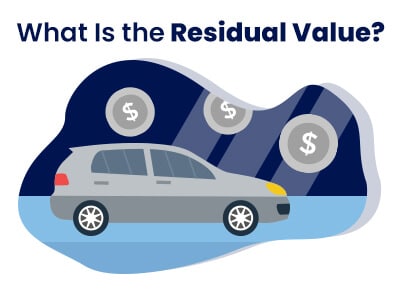 5 - What Is the Vehicle’s Residual Value?
5 - What Is the Vehicle’s Residual Value?
You want to know how much the car will be worth at the end of the lease, which is the residual value. The residual value directly relates to the price of your monthly payments. During the lease, you pay for the difference between the starting value and the residual value. Therefore, a higher residual value results in lower monthly payments.
6 - How Long Is the Lease?
Lease terms may vary, but a lease typically lasts between 2 and 5 years. Learn more about short-term leases here.
7 - What Is Due Upfront?
Most of the time, leases advertised with low monthly payments include an upfront cost. Ask about what money is due upfront because paying more upfront may not save you on the lifetime cost of the lease. If something happened to the vehicle, you could not usually get that money back.
8 - Can I Get My Deposit Back?
Leases require a deposit that you can only get back at the end of the lease. Inquire about what requirements must be met to get the deposit back. Keep in mind that the deposit is different than the down payment and that you cannot get the down payment back. Some leases do require a non-refundable deposit, so be sure to ask.
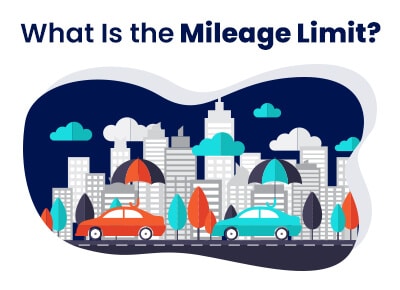 9 - What Is the Mileage Limit on the Lease?
9 - What Is the Mileage Limit on the Lease?
Make sure the lease you’re considering includes enough miles for your driving needs. Most often, leases include around 12,000 miles per year, but some may be more or less. You may also be able to negotiate a high mileage lease if you are certain you need more.
10 - What Are the Excess Mileage Charges?
Going over the mileage on a lease may not seem like a big deal, but it can cost you quite a bit. Find out what the excess mileage charges are. It will also help you determine if it’s worth trying to negotiate a high-mileage lease.
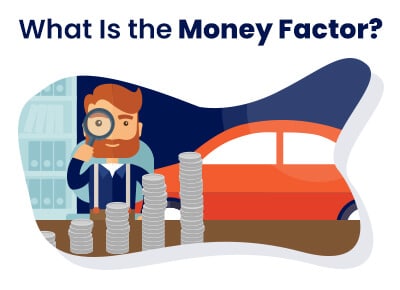 11- What Is the Money Factor?
11- What Is the Money Factor?
The “money factor” refers to the interest rate of the lease. However, the money factor is not written as a decimal and must be multiplied by 2,400 to find the percentage. Ask the dealer for the money factor and convert it to a percentage to determine what interest rate you are being offered. Use our calculator to convert the money factor to APR.
12 - What Are the Lease Fees?
Leases often include several fees. Negotiating these fees can help you lower your lease amount, so be sure to find out what fees are being charged.
13 - What Are Your Lease Specials?
Car lease specials can offer significant savings. Check with the dealer to find out if they have any deals that could help you save. Always read the fine print to ensure you know the qualifications.
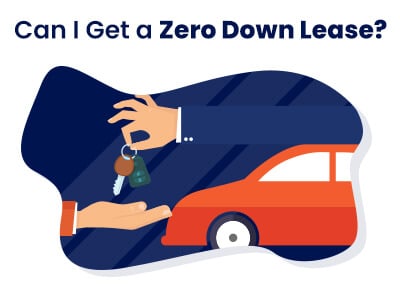 14 - Can I Get a Zero Down Lease?
14 - Can I Get a Zero Down Lease?
Yes, some manufacturers will offer lease deals that advertise zero-down or zero due at signing. If you have great credit, it's also possible to negotiate a higher monthly payment with no down payment or due at signing.
15 - What Are My Maintenance Responsibilities?
Those who lease the vehicle typically must maintain it as if they own it. Most often, you’ll need to pay for regular upkeep like oil changes and more.
16 - What Are the Warranty Terms?
Find out if the manufacturer’s warranty covers the full lease term and what exactly is covered in it. Most often, when you sign a lease that is covered by the warranty, you will not have to pay for repairs.
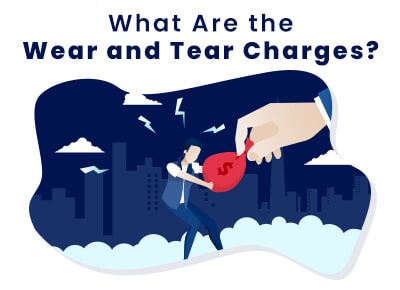 17 - What Are the Wear and Tear Charges?
17 - What Are the Wear and Tear Charges?
Most leases include charges for excessive wear and tear. What you may define as wear and tear can vary from the dealer, so make sure you know what they consider wear and tear.
18 - How Can I Buy a Leased Car at the End of the Lease?
The end-of-lease purchase price may be up to a few thousand more dollars than the actual market value. Make sure to compare the buyout price to the market value while also checking if there is a “purchase option fee” that could add even more if you buy the car after the lease.
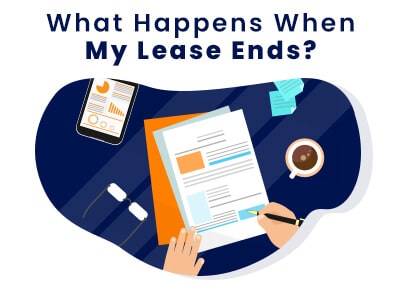 19 - What Happens When My Lease Ends?
19 - What Happens When My Lease Ends?
Most lease contracts offer a few options. While most people will return the car and begin a new lease, you should also make sure your contract includes the ability to extend the lease and buy the car at the end of the lease.
20 - Do I Need GAP (Guaranteed Asset Protection) Insurance?
Some people who lease a car through a business may need GAP insurance. The GAP insurance covers additional costs that a typical insurance plan won’t, and it can be a good idea to purchase if you write off your lease payments.
21 - Can I Return My Leased Vehicle to a Different Dealership?
You should be able to turn in your leased vehicle to a different dealership as long as it is authorized by the vehicle manufacturer. For example, if you lease a Lexus, you can turn it into a different Lexus dealership than where you got it. Ask about the process of doing so to make sure that the return will go smoothly.
Best Car Deals by Category
Posted in Car Buying Tips |




